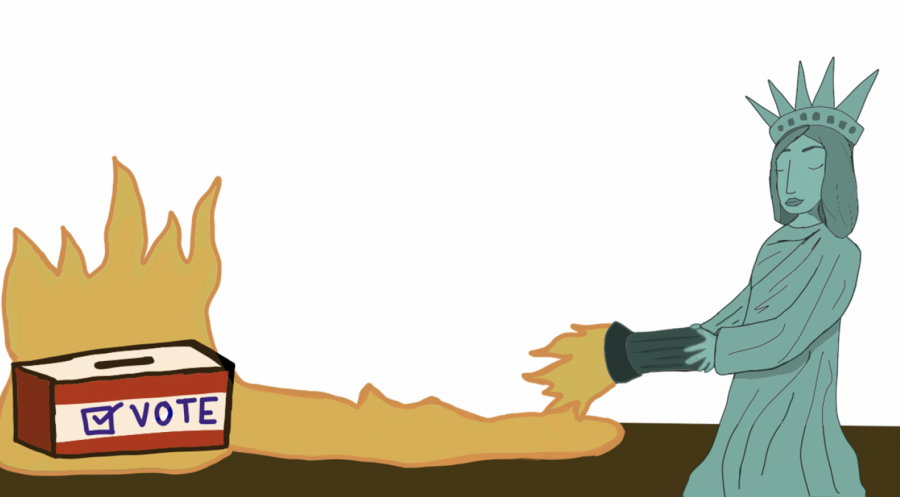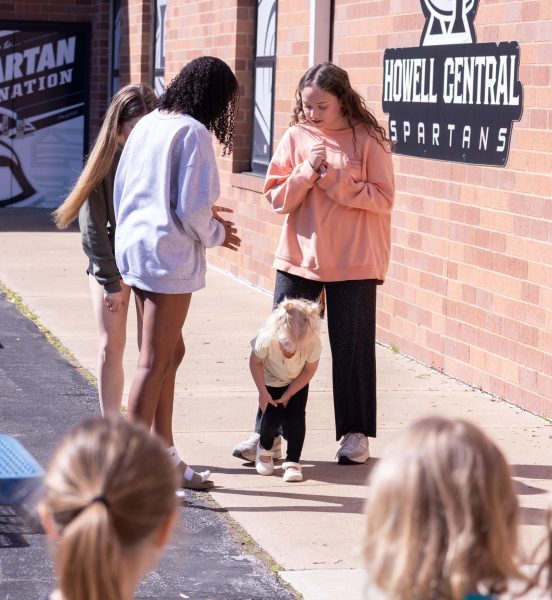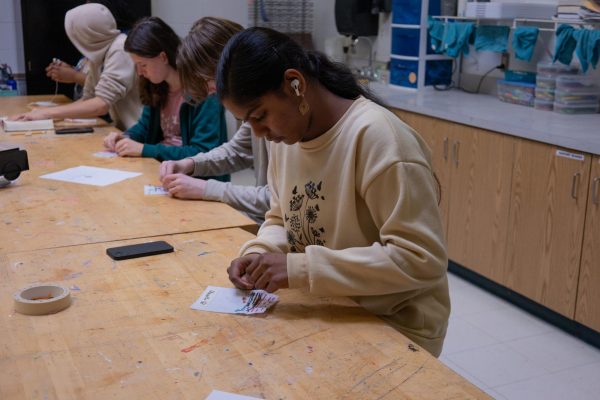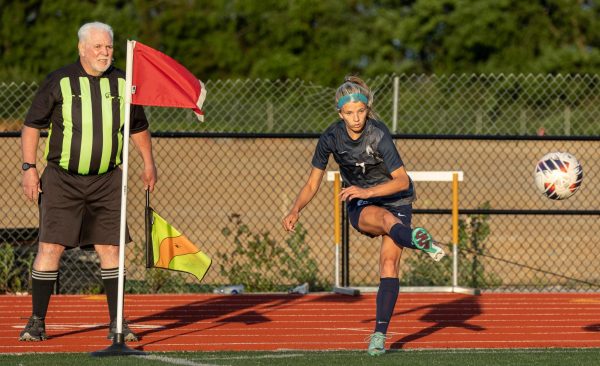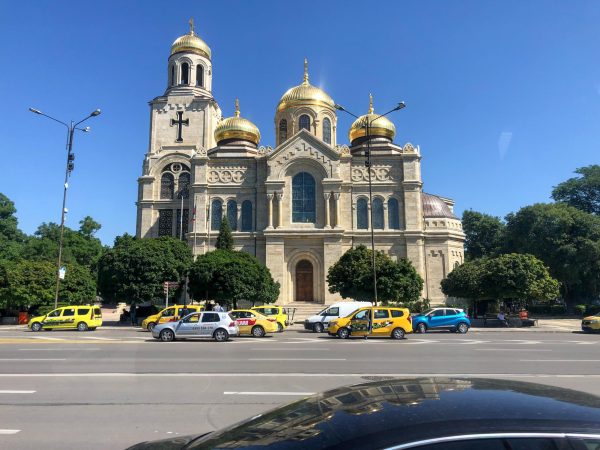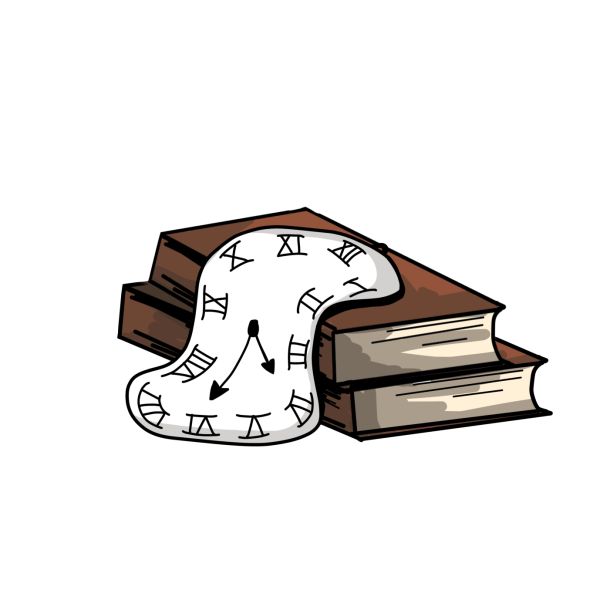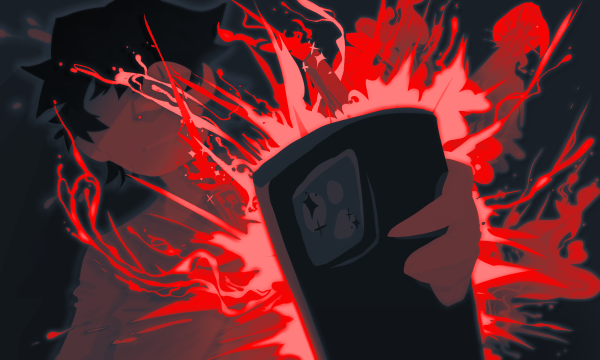Fanning the Flames
New voting restrictions threaten democracy as we know it
Lady Liberty uses her torch to ignite a ballot box. Lady Liberty is a symbol of justice and law in America. In this case, the law is deadly to democracy.
The most sacred right in our country is the right to vote. If we can’t vote, we can’t voice our opinions. If we can’t vote, we can’t select our leaders. If we can’t vote, we can’t call ourselves a democracy.
Voter suppression is a tactic used to manipulate the outcome of an election by restricting or impeding particular populations from voting. For a lot of us, our introductory lesson in voter suppression took place in the Jim Crow south. We are taught that poll taxes, grandfather clauses, and literacy tests are racist relics of a distant era. I wish I could say this was true. The plethora of new voting regulations in America are giving a lot of people deja vu.
The 2020 presidential election saw unprecedented levels of voter turnout. Over 161 million people voted. The most in American history by far. The Democratic Party was constantly calling and texting voters, sending out targeted social media ads, and most importantly, educating voters on registration and early voting procedures. The pandemic was responsible for a drastic surge in early voting. From mail-in ballots to drop-off boxes, there were many ways for people to fulfill their civic duty from a safe distance. These voting methods were popular among Democrats, and many believe they secured a win for Joe Biden.
This leaves the Republican Party at a crossroads. They can either adapt their platform, or stop their opponents from voting. Much to Lady Liberty’s dismay, states are beginning to choose the latter.
Georgia. Home of peaches and Senate Bill 202: the next big thing in voter suppression. Headlines about the bill have grabbed our attention since its passage on March 25, but is this bill really as dangerous as some make it sound? Short answer: Yes. S.B. 202 restricts access to early voting, creates new voter ID requirements and makes giving water to voters a crime.
Under the new law, fewer drop boxes will be available and will only take ballots during poll hours rather than 24/7. Additionally, it shortens the period Georgians have to request, fill out, and mail back ballots. Such restrictions on early voting are a direct result of Georgia’s recent Democratic victories. New voter ID requirements as well as the food and water restrictions disproportionately affect Black voters. Black Americans are less likely than their white counterparts to possess the necessary form of identification to vote. Areas with higher Black populations are also more likely to have longer poll lines.To address this, community members often bring those in line bottled water and snacks while they wait. Now, these volunteers would face up to a year in jail and a $1,000 fine. Because Black people make up a large amount of Georgia’s population, this bill’s intentions are clear.
The state of Georgia has done more than restrict their own people from voting, they have set dangerous precedents that affect Americans around the country.
As of March 24, 361 bills have been proposed in 47 states that limit access to voting. Half of these restrict mail-in voting, and a fourth impose stricter voter ID requirements. Over 70 of these bills have come from Arizona and Texas alone. Both states had high levels of Democratic turnout in 2020.
Georgia, Texas and Arizona may seem far away, but voter suppression is happening in our own backyard. The Missouri state legislature is currently debating nine bills relating to mail-in voting, early voting, voter registration, voter ID and voter roll purges. With many FHC students currently eligible to vote, and many becoming eligible in the coming years, we may witness the disastrous effects firsthand.
Mail-in ballot arrives too late? No vote. Polls close before you get off work? No vote. Name was mistakenly purged from voter records? No vote. No valid ID? No vote. If we don’t take action, this may become our reality.
If Congress can pass the For the People Act, we could avoid this election dystopia. The For the People Act modernizes and simplifies voter registration, preserves Native American voting rights, supports voting in U.S. territories, seeks to curb partisan gerrymandering, enhances campaign finance transparency and improves the security of our elections. The Supremacy Clause of the Constitution would allow this bill to supersede any state-level regulations. Such reform would do more than counteract voter suppression, it would make our electoral system fairer than it has ever been in the history of our country.
Our democracy is only as strong as we make it. If we stand up against voter suppression now, we can protect our future and the future of those we care for. If we stand back, we may never be able to right our wrongs, and American democracy as we know it will disappear.
Your donation will support the student journalists of Francis Howell Central High School. Your contribution will allow us to purchase equipment and cover our annual website hosting costs. FHCToday.com and our subsequent publications are dedicated to the students by the students. We hope you consider donating to allow us to continue our mission of a connected and well-informed student body.



